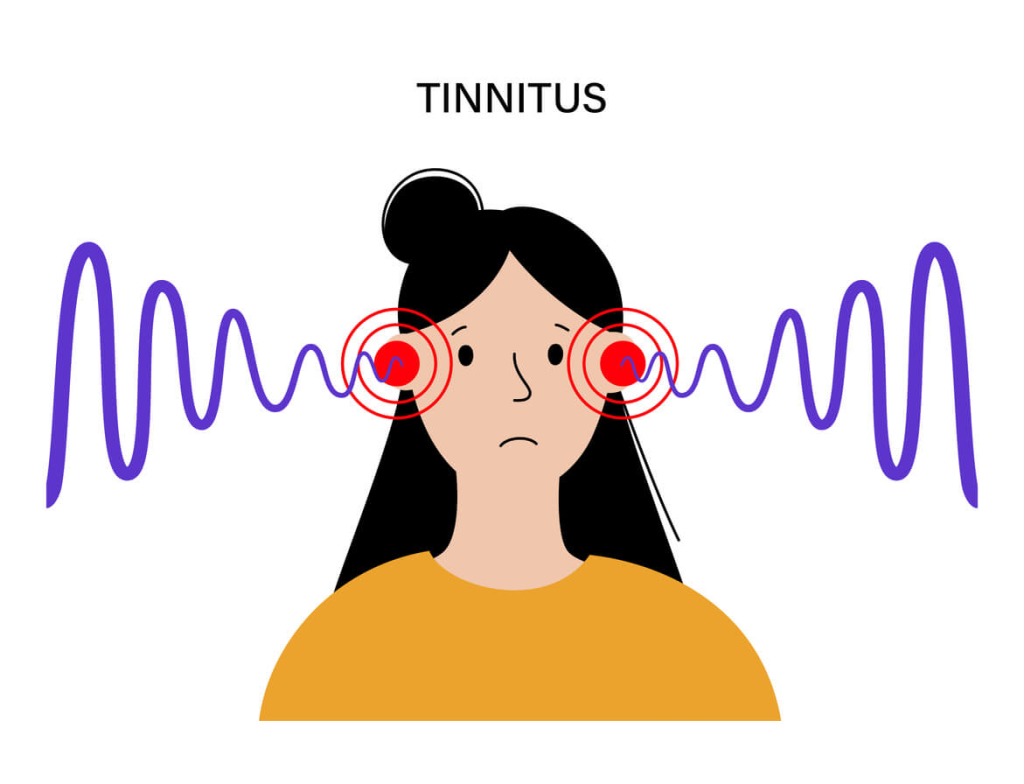Introduction
Tinnitus — the perception of sound without an external source — affects 15-20% of adults globally, with severe cases significantly impacting quality of life. While no universal cure exists, multidisciplinary management strategies can effectively reduce symptom burden. This review synthesizes evidence-based treatments, experimental interventions, and practical coping strategies.

Diagnostic Evaluation
Essential Workup
- Audiological assessment (pure-tone/speech audiometry)
- Tinnitus characterization:
- Pitch/loudness matching
- Minimum masking level
- Residual inhibition testing
- Medical imaging (MRI/CT if asymmetric/unilateral)
- Comorbidities screening:
- Hearing loss (83% association)
- TMJ dysfunction
- Cardiovascular risk factors
Evidence-Based Treatments
First-Line Therapies
| Treatment | Mechanism | Efficacy |
|---|---|---|
| Hearing aids | Auditory stimulation | 50-60% report improvement |
| Cognitive Behavioral Therapy (CBT) | Maladaptive thought restructuring | 70% symptom distress reduction |
| Tinnitus Retraining Therapy (TRT) | Habituation via sound enrichment | 80% achieve adaptation in 12-18 months |
| Sound therapy | Neural plasticity modulation | 40-50% benefit |
Pharmacological Options
- Off-label medications:
- Gabapentin (for somatic tinnitus)
- Betahistine (vascular cases)
- Intratympanic steroids (sudden onset)
- FDA-approved: None currently (20+ failed Phase III trials)
Emerging Interventions
Neuromodulation Techniques
- Transcranial Magnetic Stimulation (rTMS)
- 30% responder rate in repetitive protocols
- Transcutaneous Vagus Nerve Stimulation (tVNS)
- Paired with acoustic stimuli shows promise
- Bimodal Stimulation
- Combined sound + tongue stimulation (e.g., Lenire® device)
Regenerative Medicine
- Cochlear gene therapy (animal trials)
- Spiral ganglion neuron regeneration
Self-Management Strategies
Effective Coping Methods
- Sound enrichment: White noise generators (50-70dB)
- Sleep hygiene optimization
- Stress reduction: Mindfulness-based tinnitus stress reduction (MBTSR)
- Dietary modifications:
- Caffeine/salt reduction (anecdotal benefits)
- Zinc supplementation (if deficient)
Clinical Pearls
- Red flag symptoms requiring ENT referral:
- Pulsatile tinnitus
- Unilateral presentation
- Associated neurological deficits
- Hearing loss correlation:
- Even mild loss (20-40dB) exacerbates perception
- Placebo effect:
- 30-40% response rate in clinical trials
Future Directions
- Biomarker development (fMRI/EEG signatures)
- Precision sound therapy (AI-generated personalized stimuli)
- Cochlear implants for severe tinnitus with deafness
Conclusion
While tinnitus remains challenging to eradicate, contemporary management can provide clinically meaningful relief for most patients. A tailored approach combining auditory, psychological, and neuromodulatory interventions offers the best outcomes. Emerging technologies hold promise for fundamentally altering tinnitus pathophysiology.
